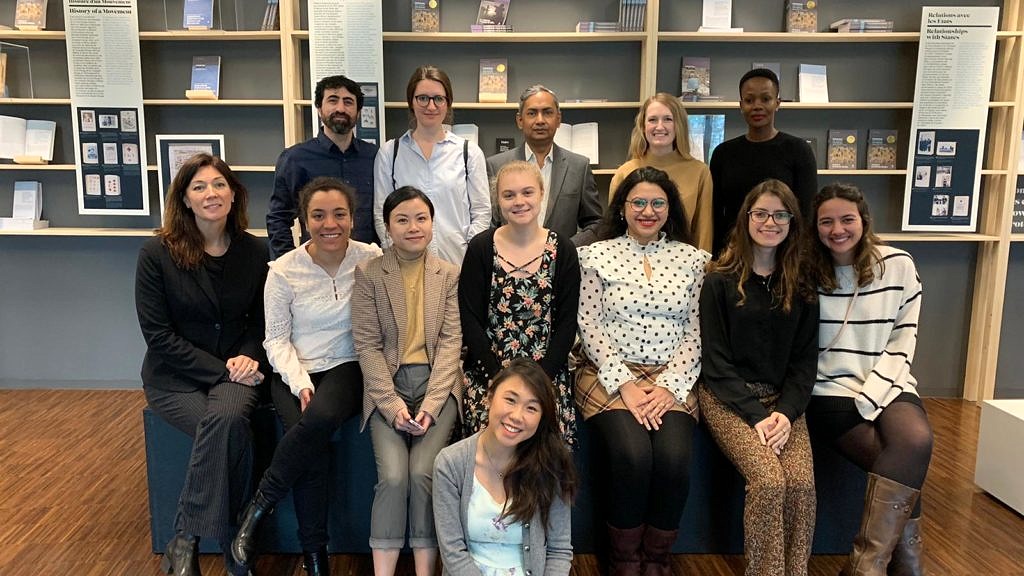On the third day of the Geneva excursion, the students of Masters of Human rights had two sessions to attend.
The first session was with the International Committee of the Red Cross (ICRC), which started off with a video shown to the students about the work that is being done by ICRC. Next, Mr Thomas Hallier came to talk to the students and provided details about the functions and struggles of the nature of work at ICRC. He talked about the history, emblems and briefly about International humanitarian law(IHL). There was discussion about the different types of armed conflicts, other situations of violence, the real-life events and how ICRC plays a crucial role in such predicaments. He concluded by focusing on the four pillars of the nature of the job, which is to protect, to assist, to prevent and to coordinate.
Thereon, Ms Taline Bodart and Ms Madalena De Vasconcelos from the legal department oriented the group. The students acquired understanding about IHL, it’s applicability and the difference between International Humanitarian Law and Human Rights law. Additionally, the group was told about the sources and case implementation of IHL.
The second appointment of the day was at the International Organization for Migration (IOM), where the group got to attend a session with Mr Joel, who is a migration officer at IOM. Mr Joel started off the session with a very powerful statement, ”A community becomes affluent mostly because of the migrants being globalised.” Mr Joel pinpointed distinction between refugees and migrants, talked about asylum seekers, circular migration, seasonal migration and illuminated the discussions with examples from his own experiences.
Both the programmes attended by the students on the third day were highly relevant and contributed with clarity about the field they would prefer to work in, in the future.

On the third day of the Geneva excursion, the students of Masters of Human rights had two sessions to attend.
The first session was with the International Committee of the Red Cross (ICRC), which started off with a video shown to the students about the work that is being done by ICRC. Next, Mr Thomas Hallier came to talk to the students and provided details about the functions and struggles of the nature of work at ICRC. He talked about the history, emblems and briefly about International humanitarian law(IHL). There was discussion about the different types of armed conflicts, other situations of violence, the real-life events and how ICRC plays a crucial role in such predicaments. He concluded by focusing on the four pillars of the nature of the job, which is to protect, to assist, to prevent and to coordinate.
Thereon, Ms Taline Bodart and Ms Madalena De Vasconcelos from the legal department oriented the group. The students acquired understanding about IHL, it’s applicability and the difference between International Humanitarian Law and Human Rights law. Additionally, the group was told about the sources and case implementation of IHL.
The second appointment of the day was at the International Organization for Migration (IOM), where the group got to attend a session with Mr Joel, who is a migration officer at IOM. Mr Joel started off the session with a very powerful statement, ”A community becomes affluent mostly because of the migrants being globalised.” Mr Joel pinpointed distinction between refugees and migrants, talked about asylum seekers, circular migration, seasonal migration and illuminated the discussions with examples from his own experiences.
Both the programmes attended by the students on the third day were highly relevant and contributed with clarity about the field they would prefer to work in, in the future.